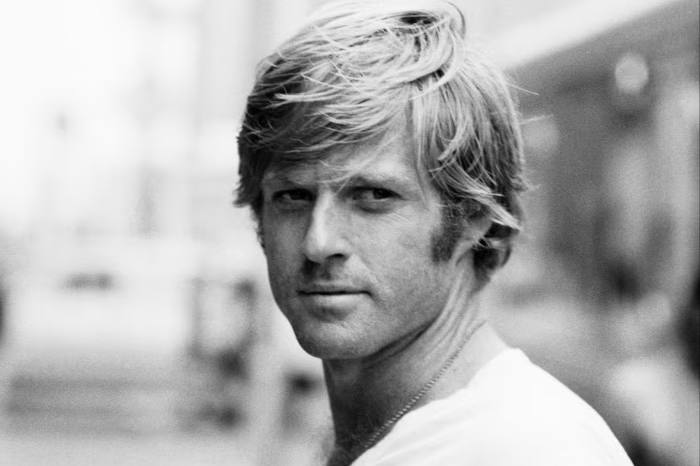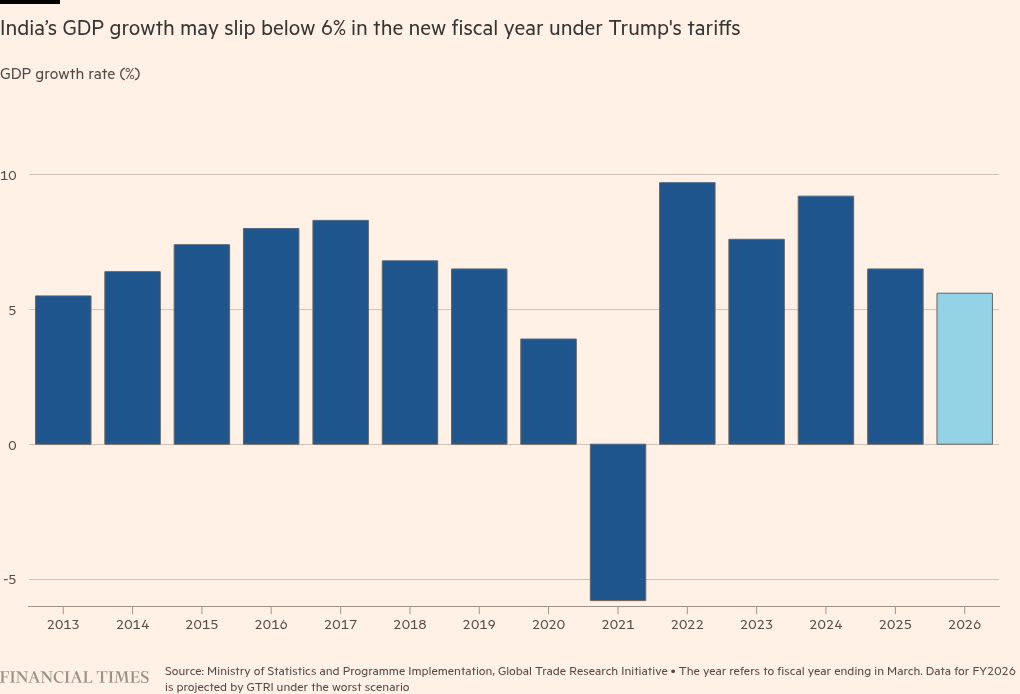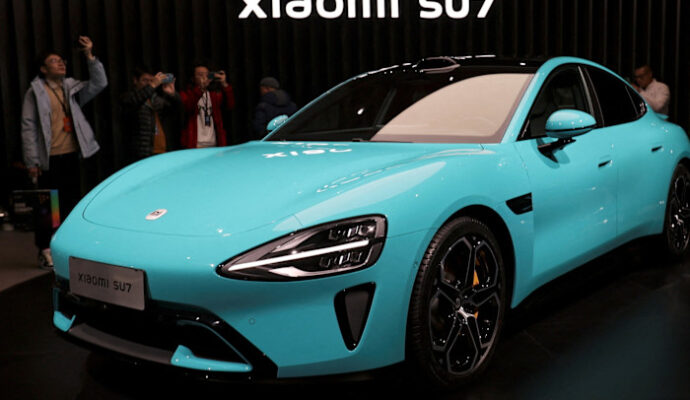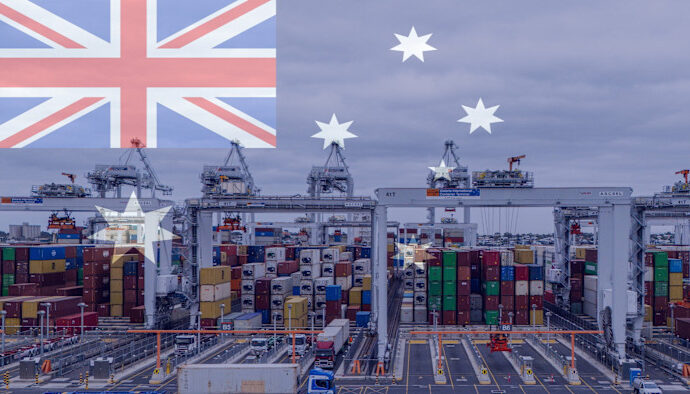This article is an on-site version of our FirstFT newsletter. Subscribers can sign up to our Asia, Europe/Africa or Americas edition to get the newsletter delivered every weekday morning. Explore all of our newsletters here
Good morning and welcome back to FirstFT Asia. In today’s newsletter:
China’s Nvidia chip ban
A Saudi-Pakistan defence pact
The problem with taxing the rich
What Trump’s tariffs mean to India’s economy — in charts
China’s internet regulator has banned the country’s biggest technology companies from buying Nvidia’s artificial intelligence chips. Here’s what we know about the move, which comes as Beijing steps up efforts to boost its domestic industry and compete with the US.
Beijing’s order: The Cyberspace Administration of China (CAC) told companies, including ByteDance and Alibaba, this week to end their testing and orders of the RTX Pro 6000D, Nvidia’s tailor-made product for the country, according to three people with knowledge of the matter. Several companies had indicated they would order tens of thousands of the chips, and had started testing and verification work with Nvidia’s server suppliers. However, after receiving the CAC order, the companies told their suppliers to stop the work, the people added.
Battle for AI supremacy: The ban goes beyond earlier guidance from regulators that focused on the H20, Nvidia’s other China-only chip widely used for AI. Beijing is putting pressure on Chinese tech companies to boost the homegrown semiconductor industry and break their reliance on Nvidia so the country can compete in an AI race against the US. “The message is now loud and clear,” said an executive at one of the tech companies. “Earlier, people had hopes of renewed Nvidia supply if the geopolitical situation improves. Now it’s all hands on deck to build the domestic system.”
Here’s more on the ban — plus how Nvidia CEO Jensen Huang responded.
Related news: China’s leading chip producer is running trials on the country’s first domestically produced advanced chipmaking equipment in an effort to challenge western rivals in producing AI processors.
More on AI: Google DeepMind’s latest AI model has achieved a “gold-medal level” performance at a prestigious competition known as the “coding Olympics”.
Here’s what we’re keeping tabs on today:
Economic data: Australia reports August labour force figures. New Zealand publishes second-quarter GDP.
Monetary policy: Taiwan and the UK announce rate decisions. The Bank of Japan begins its two-day monetary policy meeting.
Trump’s UK state visit: The US president attended a lavish state banquet at Windsor Castle last night and will hold bilateral talks with Prime Minister Sir Keir Starmer today.
Five more top stories
1. Saudi Arabia has signed a “strategic mutual defence” pact with Pakistan. Riyadh’s deal with the nuclear-armed south Asian country comes a week after Gulf states — traditionally reliant on the US as their security guarantor — were deeply rattled by Israel’s missile strikes targeting Hamas’s political leaders in Qatar. Read more about the agreement.
2. China is delaying the settlement of annual dues it owes to the UN later and later each year, according to an FT analysis, exacerbating a funding crisis at the global body. The delays have come as Beijing has sought to expand its influence at the UN and promote itself as the leader of an alternative to the US-led world order.
3. The US Federal Reserve has cut interest rates for the first time this year, reducing borrowing costs by a quarter point and signalling further reductions in the months to come. Yesterday’s rate cut comes amid growing worries about the jobs market and as President Donald Trump attacks the Fed, insisting the central bank should drastically lower borrowing costs.
More US news: Treasury secretary Scott Bessent’s chief of staff is set to take on a top job at the IMF, giving the Trump administration more sway at an organisation it has criticised.
4. Indonesia’s parliament is considering expanding the central bank mandate to support economic growth as President Prabowo Subianto increases efforts to meet ambitious growth targets. The draft bill governing the running of Bank Indonesia would also give parliament the power to remove the central bank governor or other board members after a parliamentary evaluation of their supervisory functions.
5. The US Securities and Exchange Commission gave public companies a powerful new tool yesterday to curb shareholder lawsuits, as chair Paul Atkins pledged to “make IPOs great again”. The regulator said it would no longer block companies from the public markets if they banned shareholders from filing class-action lawsuits, ripping up a decades-old policy as it seeks to fulfil Trump’s deregulation drive.
The Big Read
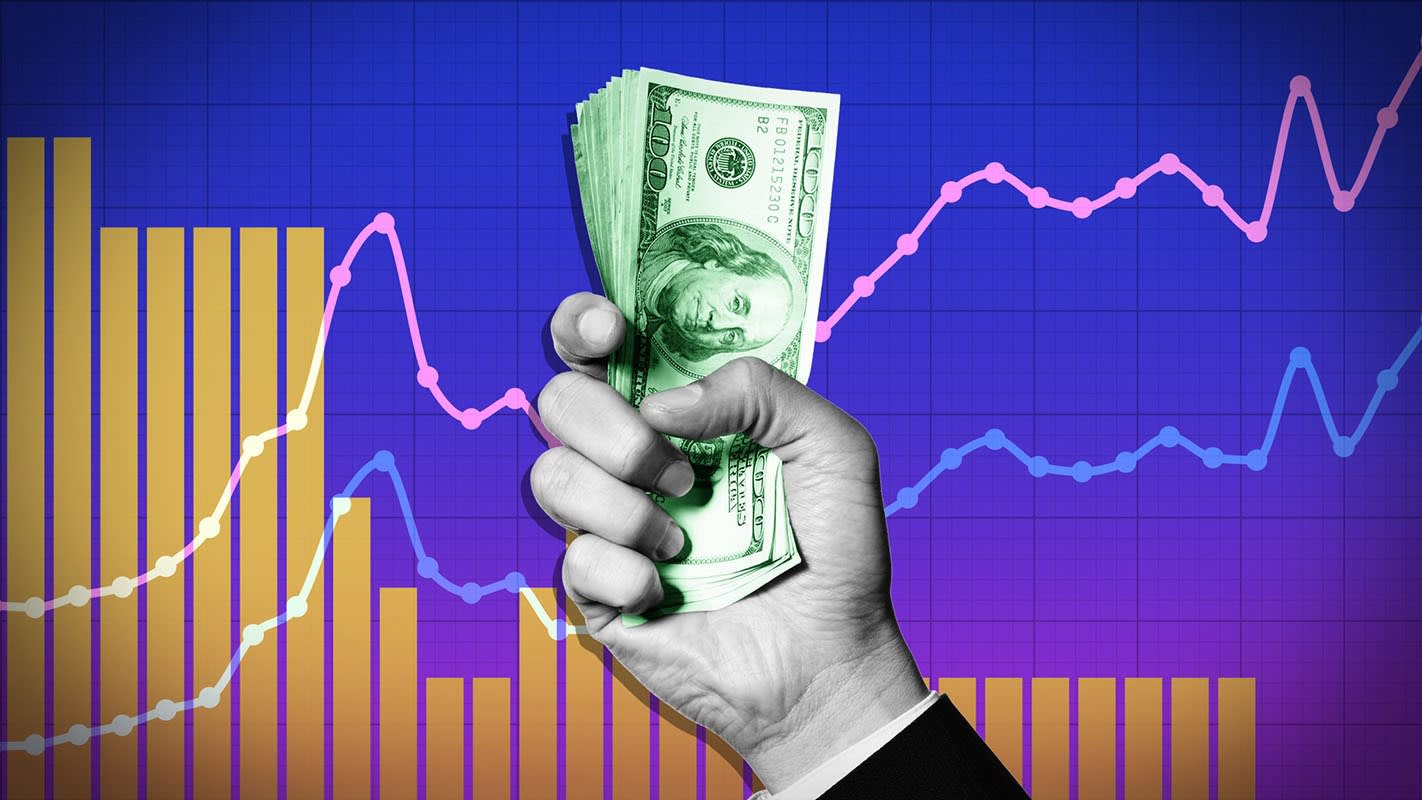
Fiscal systems designed around income and consumption struggle to capture wealth held by billionaires, which is often concentrated in real estate, investments or equity in businesses. These assets are illiquid and hard to value — and their owners tend to be highly mobile. So how could governments tax the super-rich?
We’re also reading . . .
Chart of the day
Donald Trump has hailed India’s Prime Minister Narendra Modi for doing a “tremendous job”, adding to hopes of reconciliation as Washington and New Delhi held a fresh round of trade talks. However, the impact of the US president’s tariffs is being felt across India, threatening jobs, GDP growth and years of diplomacy.
Take a break from the news . . .
Robert Redford, the star of Butch Cassidy and the Sundance Kid and All the President’s Men, who later co-founded the Sundance Institute and championed environmentalist causes, has died aged 89. Nicolas Rapold pays tribute to one of Hollywood’s foremost leading men of the postwar period.
